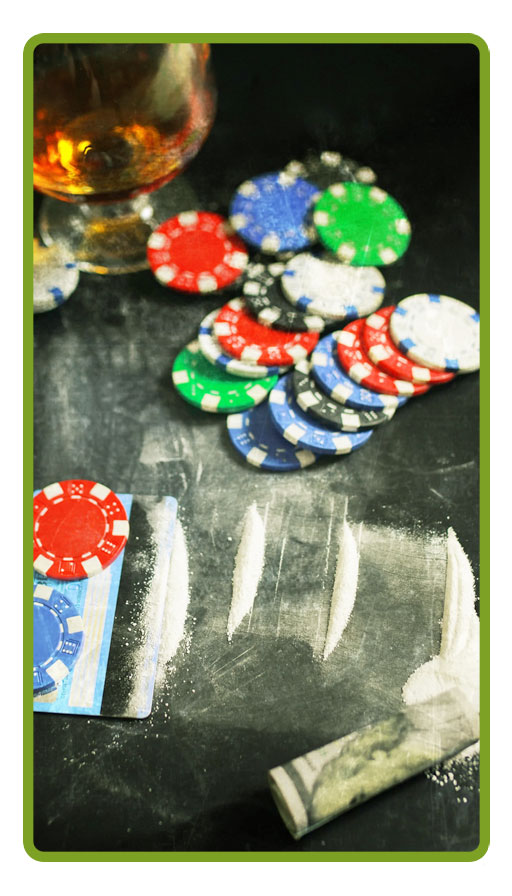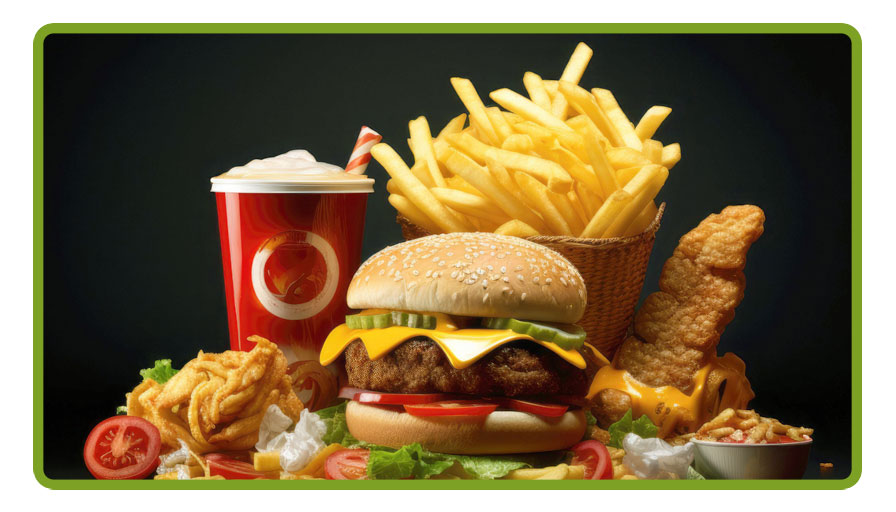Acupuncture & Oriental Medicine for Addiction Recovery
According to acupuncture and Oriental medicine, emotions originate internally from different organs inside the body. Conditions and events in the external world may provoke specific reactions but, ultimately, each person is responsible for the emotion generated.
Any addiction, whether to drugs, alcohol, food, work, or other activity or substance, effectively blocks intelligence and suppresses healing abilities. Through these behaviors, we choose to rely on the demands of addiction to dictate our lives, rather than taking responsibility to conduct ourselves in a healthy, life-affirming way.
Is there a body/mind connection to willpower? According to the principles of acupuncture and Oriental medicine, there is. The zhi represents willpower, drive, and determination. It manifests as the urge to persist in one’s efforts and, when in deficiency, feelings of defeat, pessimism, and depression may occur. Without strong willpower, or zhi, one may easily succumb to the temptations of addiction.

Acupuncture and Oriental medicine can help cleanse and re-balance your body and mind to overcome a variety of addictions, and can help manage cravings. The safe space provided during treatment is both literal and metaphorical.
Several approaches may be used when treating addictions, generally starting with therapies that help cleanse and balance. Sometimes a vague, uneasy sensation takes over after or during the process of releasing an addiction. Perhaps for the workaholic patient, it is strange and alarming to experience leisure time. Addicts require fortitude to find replacements for the dependence on substances or addictive behaviors. This is why willpower, or zhi, needs treatment, to provide support and determination to discover the power within oneself–a universal necessity for overcoming any addiction.
To aid your transformation from addiction and addictive behaviors to healthier practices, try focusing on routine. Routine provides stability, and a new routine is necessary to break old habits. If your first thought in the morning is to reach for a cigarette, replace that action with another, healthier ritual.
The replacement ritual could be anything from reaching for warm water with lemon and a pinch of cayenne to refresh your system, or singing your favorite song or stating out loud your plans for the day. As long as the action is positive and consistent, it will serve your new routine and changing thought processes.
Deep breathing with visualization can also strengthen willpower and be used as a tool to curb hunger and cravings. Most patients report a marked decline in appetite and cravings with acupuncture treatment alone, but special herbs, healing foods, and exercises can definitely enhance the efficacy of the treatments.
Everyone experiences addiction in different ways, with varying symptoms, and treatment is adjusted to the individual needs of the person seeking treatment. Some respond better to a sudden, jarring change in habits, whereas others may require a slower process to adjust to the changes that must be made. At some point during the detoxification process, the next step necessary to your healing will be addressed, helping to ensure that your strengthened willpower and emotional balance lasts a lifetime.
Are there cravings or an addiction you are working to overcome?
Acupuncture is Beneficial in Treating Alcoholism
A promising study called the “Controlled Trial of Acupuncture for Severe Recidivist Alcoholism,” published in the UK medical journal, The Lancet, volume 333, revealed the potential for acupuncture as a tool to help those suffering from alcoholism.
Eighty patients were divided into two groups–the treatment group received the appropriate acupuncture treatments and the control group received sham acupuncture. Sham acupuncture means the acupuncture points selected were not specific to treating their condition.
At the end of the study, only 1 out of the 40 control group patients completed it, while 21 out of the 40 treatment group patients did.
After a six-month follow-up, it was found that patients from the control group had over two times as many drinking incidents and visits to rehabilitation centers than did the patients from the treatment group. These results show a significant advantage for those using acupuncture to battle severe recidivist alcoholism.
Overcome Substance Addiction

Researchers say that acupuncture is a promising treatment for all types of addiction, from cigarettes to heroin.
In one study, a team from Yale University successfully used auricular (ear) acupuncture to treat cocaine addiction. Results showed that 54.8 percent of participants tested cocaine-free during the final week of treatment, compared to 23.5 percent and 9.1 percent in the two control groups. Those who completed acupuncture treatment also had longer periods of sustained abstinence compared to participants in the control groups.
Acupuncture treatments for addiction recovery focus on jitters, cravings, irritability and restlessness–symptoms that people commonly complain about when they quit. It also aids in relaxation and detoxification.
Fight Food Addiction With a Total Health Program
What does it mean to listen to your body, as the expression goes? What if your body is telling you to eat chocolate bars for breakfast, or that fast food makes for an acceptable and tasty dinner? When your mind and body enjoy relative good health, the body’s cravings should prove more reliable in discerning which foods to take in for maximum nutrition.
Acupuncture and Oriental medicine not only offers therapies to reduce cravings, such as acupuncture and dietary counseling, but it also explains the nature of these cravings in a simple, eloquent way. Whether you describe your cravings as a longing, hankering, or an urge, it all signifies a possible internal organ imbalance resulting in an addictive, compulsive behavior.

The issues of overeating and low metabolism are addressed with effective tools to control cravings, appetite and increase energy. Energy imbalances are corrected, and the digestive and elimination processes are improved so that there is a physical shift in the body to naturally have more energy and desire less food.
By addressing both the physiological and psychological aspects of weight management concerns, acupuncture and Oriental medicine provide a comprehensive therapy for weight issues that promote better digestion, balance emotions, reduce appetite, improve metabolism and eliminate food cravings.
Each treatment is customized to the needs of the individual patient. Acupuncture points on the body are chosen for overall well-being with the objective of increasing circulation of the blood and Qi to stimulate the metabolism and calm the nervous system. Treatments can include a combination of auricular (ear) and body acupuncture, ear tacks or pellets to leave on between treatments, herbs and supplements, abdominal massage, breathing exercises, and food and lifestyle recommendations.
The treatments chosen for weight management are for promoting healthy digestion, energizing the body, augmenting Qi, and improving elimination of water, toxins and waste products. Acupuncture can help improve digestion, assist with food absorption, and the movement of food through the intestines.
Acupuncture and Oriental medicine are powerful tools for achieving a healthy weight, by itself or as a supportive treatment in conjunction with other weight management programs.
Reaching Your Ideal Weight
In Oriental medicine, the root of excess weight is an imbalance within the body caused by malfunctioning of the spleen and liver organ systems. Acupuncture points, as well as foods and herbs selected to assist with weight loss, can directly influence the Qi of the spleen and liver systems and treat the imbalances that have caused weight gain.
Shown to have positive effects on the functioning of the nervous, endocrine, and digestive systems, acupuncture and Oriental medicine treatment can help with food cravings and metabolism. These functions all help energize the body, maximize the absorption of nutrients, regulate elimination, control overeating, suppress the appetite, and reduce anxiety.
Acupuncture and Oriental medicine both address the issues of over-eating and low metabolism with effective tools to control appetite and increase energy. Energy imbalances are corrected and the digestive and elimination processes are improved so that there is a physical shift in the body to naturally have more energy and desire less food. Additionally, by addressing both the physiological and psychological aspects of weight management concerns, they provide a comprehensive therapy for weight issues that promote better digestion, balance emotions, reduce appetite, improve metabolism, and eliminate food cravings.
Each treatment is customized to the needs of the individual patient. Acupuncture points on the body are chosen for overall well-being, with the objective of increasing circulation of the blood and Qi (to stimulate the metabolism) and calming the nervous system. Treatments can include a combination of auricular (ear) and body acupuncture, ear tacks or pellets to leave on between treatments, herbs and supplements, abdominal massage, breathing exercises, and food and lifestyle recommendations.

In addition to treating the root of the imbalance within the body, different acupuncture points may be used for each treatment as different symptoms arise. For instance, if you are experiencing a desire to overeat related to premenstrual syndrome (PMS) one week, then it can be addressed at your appointment that week. The herbs and foods that are chosen during a weight management treatment are for promoting healthy digestion, energizing the body, augmenting Qi, and improving elimination of water, toxins and waste products.
Deep breathing with visualization can also strengthen willpower and be used as a tool to curb hunger and cravings. Most patients report a marked decline in appetite and cravings with acupuncture treatment alone, but special herbs, healing foods, and exercises can definitely enhance the efficacy of the treatments.
Acupuncture and Oriental medicine are powerful tools for achieving a healthy weight, by itself or as a supportive treatment in conjunction with other weight management programs.
Seven Addiction Recovery Tips
In addition to getting treatment, here are seven lifestyle changes you can make to help curb cravings, improve your overall well-being, and assist in your recovery.
- 1. Exercise more. Exercise can reduce your stress and help you relax.
- 2. Get plenty of fresh fruit and vegetable juices to neutralize and clear the blood and to fortify blood sugar.
- 3. Carrots, celery, leafy green salads, and citrus fruits promote body alkalinity and decrease cravings.
- 4. Avoid junk food, sugar, and coffee. They can upset blood sugar levels and increase blood acidity, which can aggravate withdrawal symptoms.
- 5. Lobelia tea or green tea can be sipped daily during the detox period to keep tissues flooded with elements that discourage cravings. Lobelia is traditionally used to rid the body of a strong toxin such as a snake bite.
- 6. Drink water. Research shows that dryness causes cravings. Sip water frequently throughout the day.
- 7. Practice deep breathing exercises to increase body oxygen and keep calm.
Combat Cravings with Ear Massage
Ear massage is an extremely relaxing and effective therapy aimed at decreasing cravings, reducing stress, promoting well-being, and addressing various health issues. Ear acupuncture is used throughout the world to reduce food cravings, assist in the detoxification of addictive substances, manage pain, and calm anxiety.
Ear massage triggers the release of endorphins, the body’s natural painkillers. Studies have demonstrated that ear stimulation increases levels of endorphins in both the blood and cerebrospinal fluid.
Here is a great ear massage that you can do for yourself or your loved ones:
- ~Rub in small circular motions with your thumbs inside the widest upper part inside the ears, holding them from outside with the index and middle fingers.
- ~Use your index finger to massage inside the smaller crevices if your thumbs don’t fit and along the front of your ear where it attaches to the head.
- ~Massage the earlobes by gently pulling them down and making circles with your thumb and index finger.

